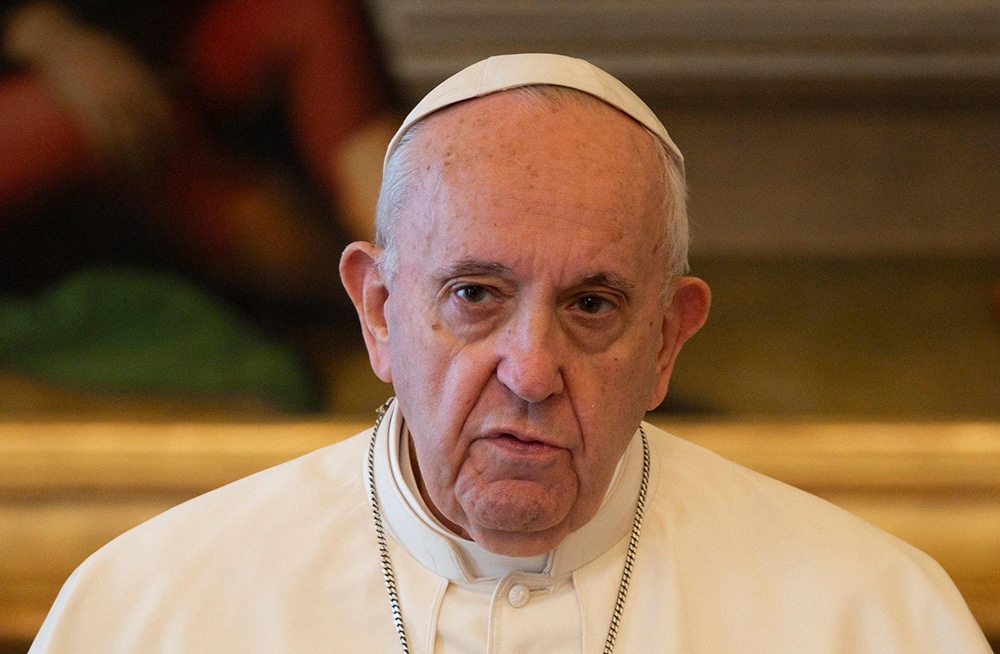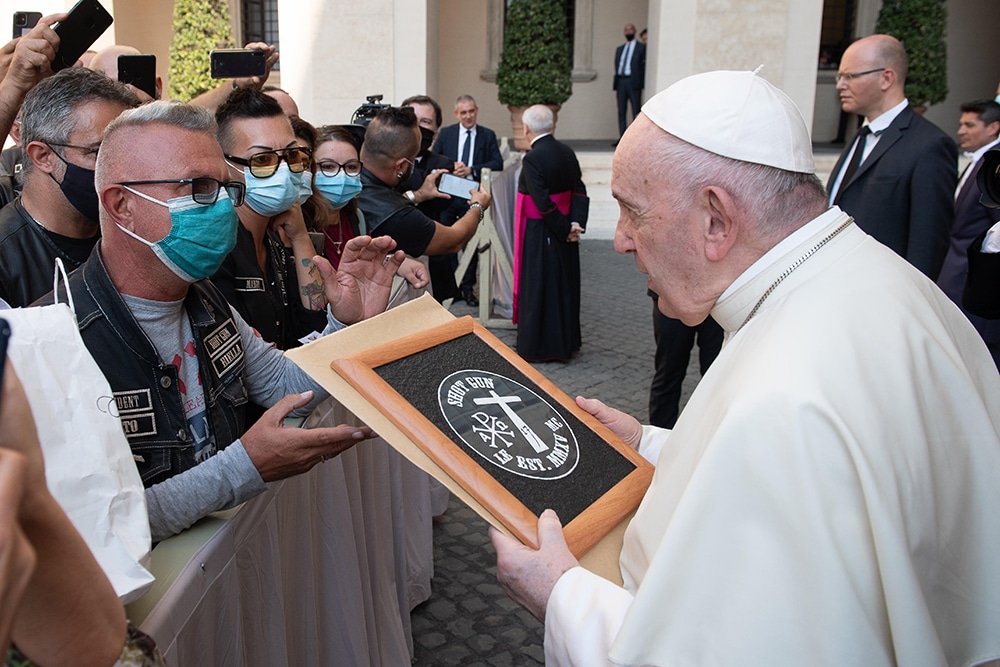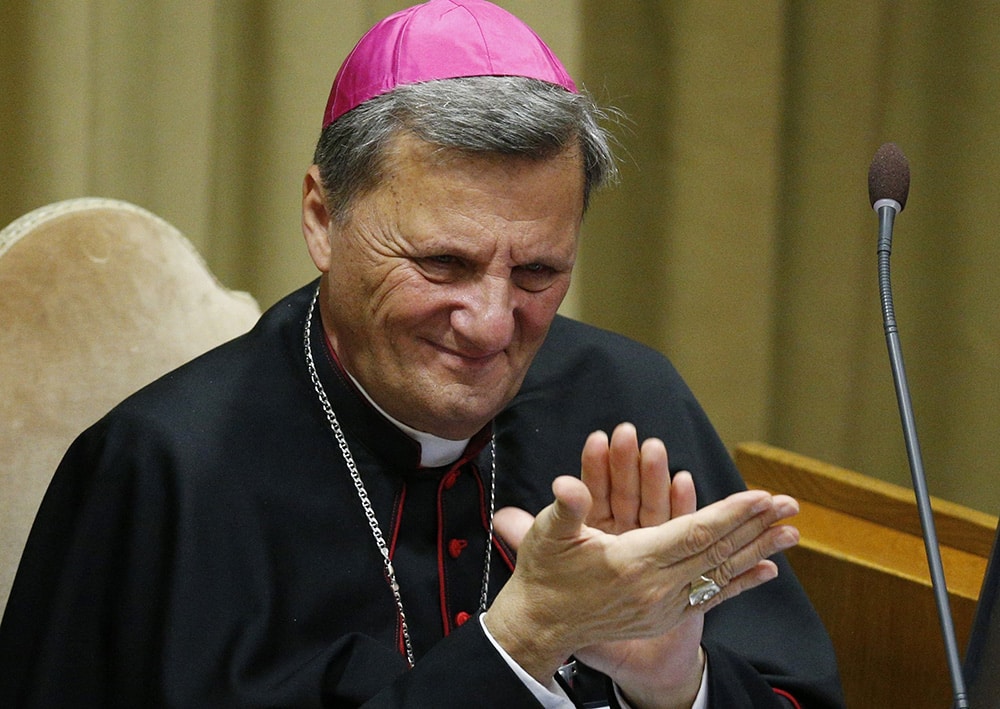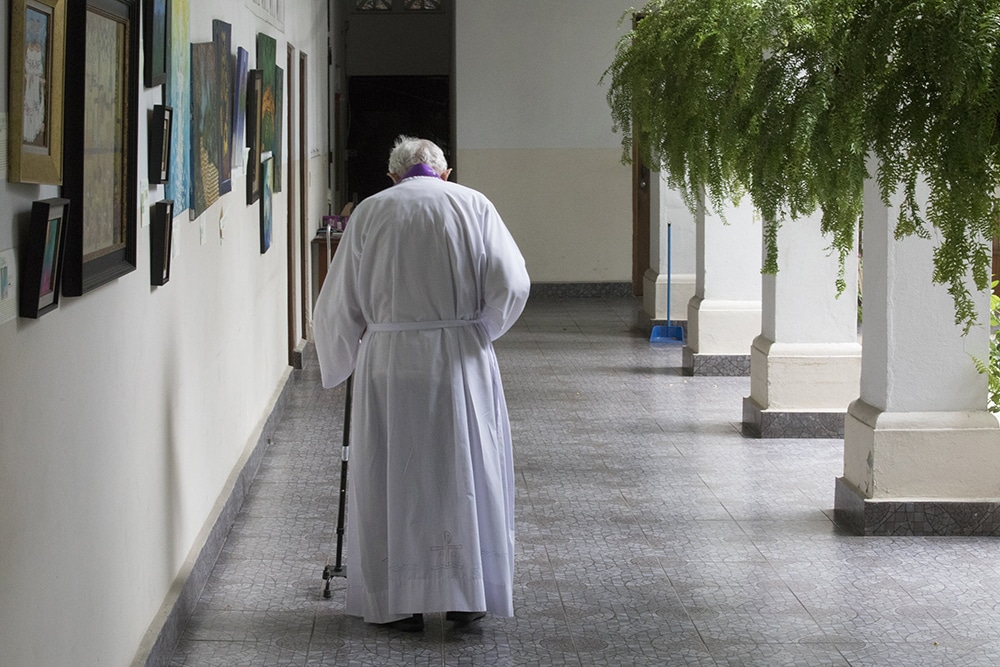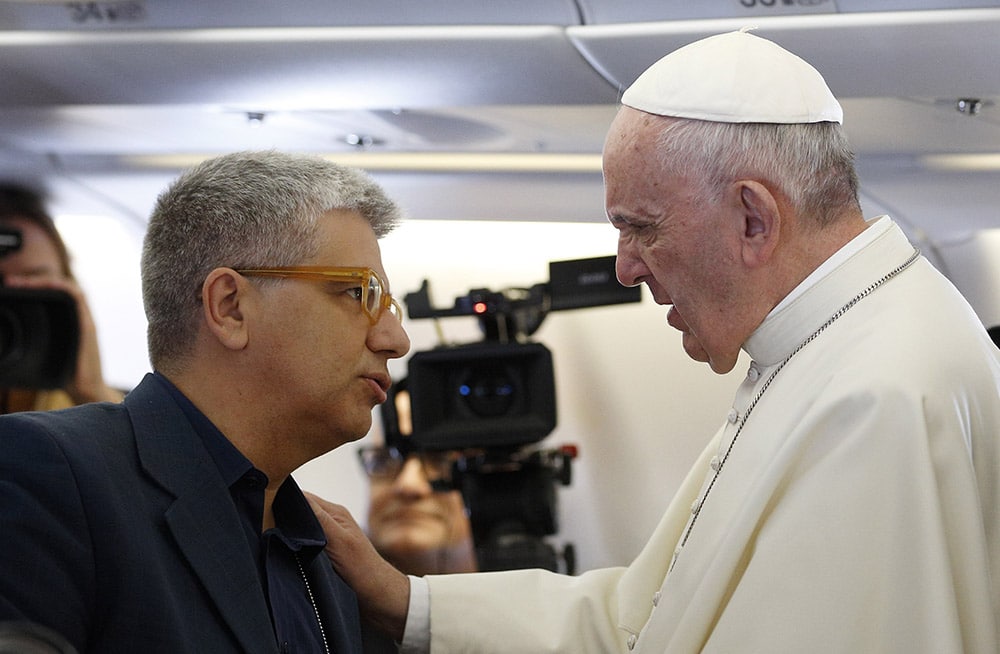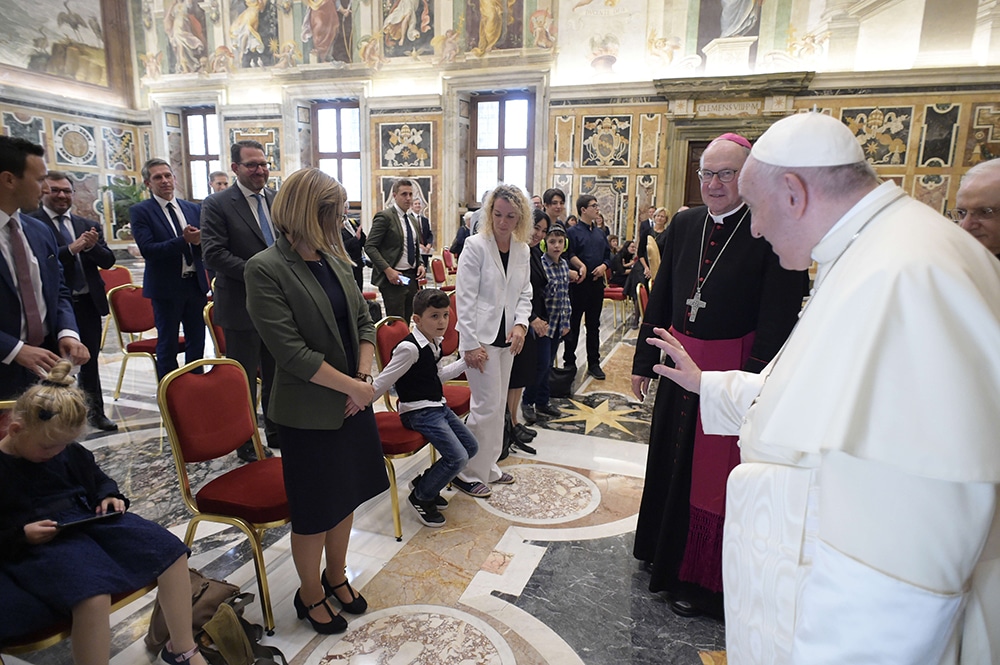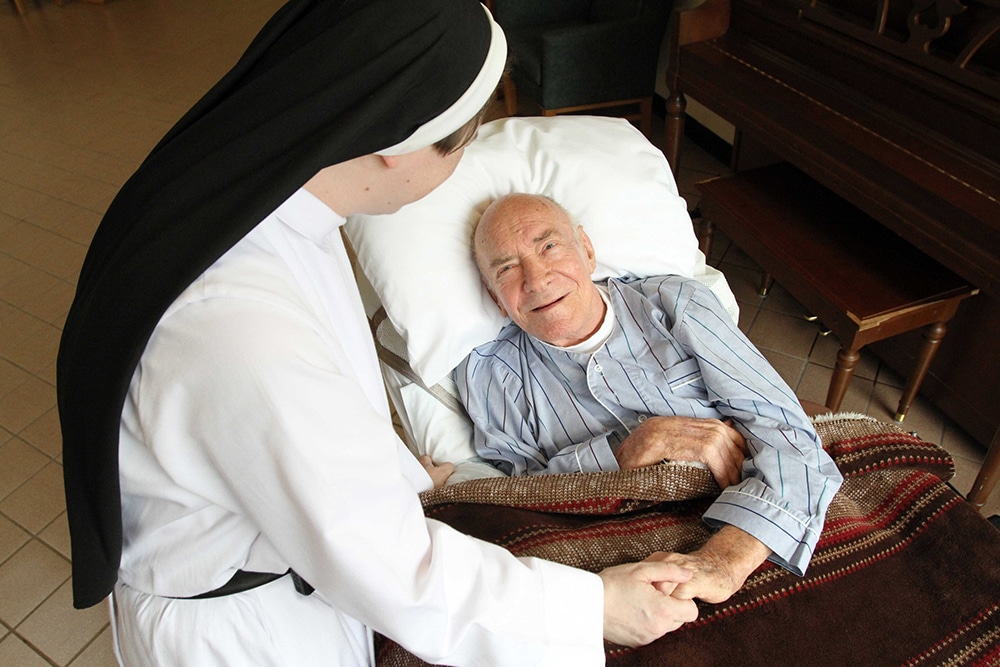VATICAN CITY (CNS) — With so much conflict, violence and war, the world needs people who are specially prepared to bring Gospel values to social, political and economic situations, Pope Francis said.
Multidisciplinary research and study for building up a body of knowledge on peace would be the basis for “forming truly valuable peace workers, ready to get involved” in the many different facets of today’s society, he said in a preface to a new book published by the Vatican publishing house.
The book, published in Italian, is titled “For Knowledge of Peace.” Edited by Msgr. Gilfredo Marengo, vice president of Rome’s Pontifical John Paul II Theological Institute for Marriage and Family Sciences, it is a compilation of reflections written by Archbishop Paul Gallagher, Vatican foreign minister, Cardinal Renato Martino, the retired president of the former Pontifical Council for Justice and Peace, and others.
According to Vatican News, which published the pope’s text Sept. 15, the book aims to contribute to the development of a specialized field and expertise in peace work — something Pope Francis furthered when he instituted a new cycle of courses in peace sciences at Rome’s Pontifical Lateran University in late 2018. The undergraduate and graduate degree programs integrate philosophy, theology, law, economics, the humanities and social sciences.
In the preface to the new book, the pope said people need to ask why there is so much violence today, particularly when globalization has shown how interconnected everyone is.
“Why do people who are different from us often make us afraid, so much so that we become defensive and suspicious, which too often turns into hostile aggression?” he asked.
“Why do those who govern countries believe that showing force, even with acts of war, gives them greater credibility in the eyes of their citizens and increases the support they enjoy?” he said.
These and other questions need more than quick, generic responses, he said; they require professional research and the adequate formation of younger generations, which the peace sciences degrees are meant to serve.
The church is called to work for solutions to problems concerning peace, harmony, the environment, the protection of life, and human and civil rights, he said.
The pope said he was hopeful “rigorous in-depth study” in these fields would foster the development of “a knowledge of peace” for teaching a new generation of peace workers who are ready to put their skills to work anywhere.
“A good peace worker” goes beyond just analyzing what is wrong, but is also ready with realistic, applicable and decisive proposals, he said.
The person must have a background of scientific study but also have “a heart able to share the joys and hopes, sadness and distress of people today” so as to work with “real evangelical discernment,” he added.
“We truly need men and women who are well prepared, equipped with all the necessary skills for reading and interpreting social, economic and political dynamics of our time,” he said.
The vocation of laypeople is first and foremost love in the family and the social and political world, rooted in the faith and concretely fostering peace, harmony, justice, human rights and mercy, he said.

